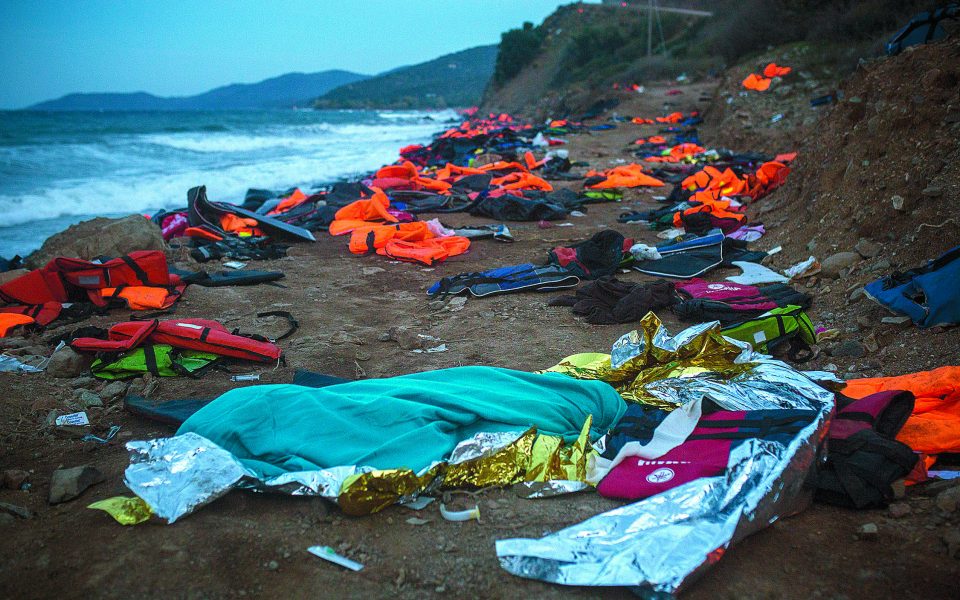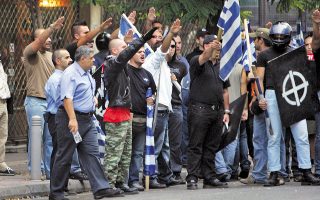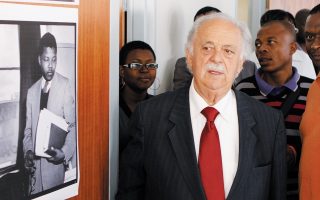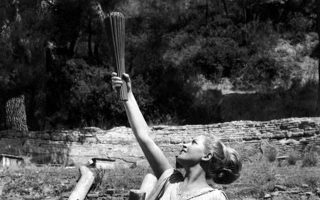In the dock over son’s drowning on sea crossing

The last time Ayoubi Nadir remembers seeing his son alive was just before midnight on November 7. It was cold and he was holding the 5-year-old in his arms. The boat they were in was packed and the sea was choppy. The 25-year-old Afghan father was scared but was trying hard not to let the boy sense his fear.
The lights of the Greek island of Samos were just visible through the inky darkness, giving him hope. They were minutes from land when a wave threw their boat onto rocks. In the impact, father and son were separated. Nadir, barely able to keep himself afloat, called out his son’s name, knowing that the child would recognize his father’s voice even in the din of others crying out.
Nadir had grown extremely attached to Yahya in the three years that he had been divorced and was raising the boy alone in Istanbul, where he eked out a living working in construction. When the Turkish authorities rejected the Afghan man’s asylum claim a second time, his lawyer told him that they would have to leave the country, where Yahya would not even be allowed to go to school. Returning to Afghanistan was not an option – Nadir’s village had been destroyed in bombing when he was just 9 years old and he had since lived as a refugee in Iran and Turkey.
A few weeks ago, he decided to risk the journey from Turkey to Greece, hoping for a better life for himself and his son in the European Union. Their destination was Austria, where he has a sister. He borrowed 1,500 euros for the first leg of the journey, and father and son got into the boat on the night of November 7.
A few minutes after the boat crashed onto the rocks, one of the passengers managed to send an SOS message, not to the coast guard, but to a nongovernmental organization. Concerned by rumors of pushbacks, having the number of an independent agency was a safety net. At 12.06 a.m. on November 8, the NGO alerted the coast guard, which sent two rescue boats to the spot. Nadir and the others saw their spotlights and waved their arms in the air, but the two boats left shortly after 2 a.m., claiming never to have seen the shipwrecked migrants. In the meantime, Nadir had kept going back into the water, looking for his son.
Apart from Yahya, three other people were missing. A group of the survivors decided to set off on foot to seek help. Nadir testified that he begged them to stay put before eventually deciding to join them. They were walking for quite some time before they were spotted, at 6.40 a.m., by a coast guard patrol high in the hills of Samos. Nadir used the little English he knows and hand gestures to indicate that his boy was missing and may still be alive.
Later, back at the coast guard’s headquarters, a translator told him that the child was in hospital. Nadir was separated from the group and questioned. He was told the truth only after the preliminary interrogation: His son’s lifeless body had been found by a boat at 9 a.m. Nadir collapsed at the news. He was taken to the mortuary to identify Yahya’s body and was then held in custody overnight. The translator accompanied him to the investigating magistrate the next morning, where he had to answer the same questions as the previous day. Toward the end, the Afghan translator stopped, lost for words at how to convey what he had just heard: that Nadir was being charged with endangerment of a minor.
The reasoning behind the accusation is that he put his son at risk by putting him in the boat and that he then abandoned the scene of the accident. If he is convicted in connection with Yahya’s death, Nadir faces up to 10 years in a Greek prison. “But I was trying to get help,” he told the magistrate. His lawyer, Dimitris Choulis, tried to explain that they were looking at an unprecedented situation. The charge may have legal merit, he said, but is unlikely to stick given that Nadir came to Greece looking for asylum for himself and his son.
Nadir listened to the lawyer but kept repeating a demand he had been making since the morning: He wanted to visit the morgue one more time. Though it was not part of the accepted procedure, his request was accepted, and he was escorted to the building in handcuffs. The lawyer and the translator waited outside. When he came out half an hour later, Nadir was no longer in handcuffs and was so devastated he had to be held up by a coast guard officer – even the official seemed moved.
The next day in court, Nadir could barely answer the questions from the bench. The translator realized that he was terrified and stopped at some point to speak with him: “You must find the courage to explain exactly what happened,” he advised the 25-year-old. Nadir managed, with difficulty, and was later released from police custody and sent to the island’s migrant camp, where he is now awaiting trial. He was relieved, but the only thing he cares about right now is being able to attend his son’s funeral.





